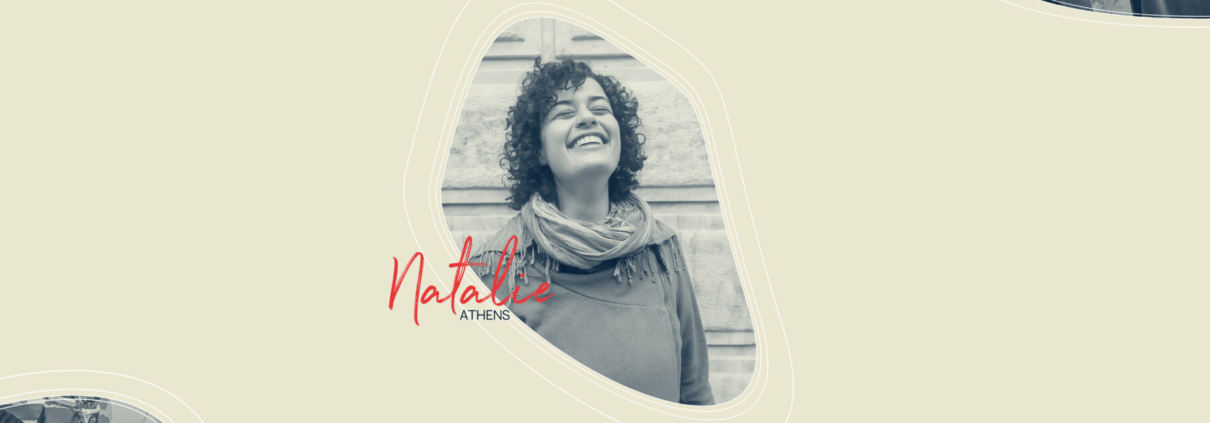“I’ve always wanted to provide humanitarian aid”
Natalie Faddul, 31, is a doctor from Hamburg. She lived in Berlin for twelve years, where she began her residency in internal medicine – until she came to Greece in May 2020. She planned to stay for a few weeks only, but ended up staying on a humanitarian aid mission until now.
When the pandemic really hit Europe and people went into lockdown in many places, you flew to Thessaloniki to provide medical care to refugees. What was that like for you?
It was difficult to even get to Greece in the first place. The Corona pandemic had started a few months ago and still had an impact on travelling without obstacles. Originally, I wanted to stay for four weeks only. But when a lot of volunteers were unable to start their missions due to the pandemic, I ended up staying much longer. Half a year later, I was offered the position of medical coordinator and stayed in Thessaloniki for another six months.
What does humanitarian aid look like in times of Corona?
The situation in recent years has increased the challenges for people on the move and also for NGOs on the ground. Thessaloniki used to be the first safe place in Europe for people on the move. But now quite a lot of them are stranded there because they are pushed back at inner-European borders. Many live on the streets, which in turn means they cannot “stay at home” during a lockdown. They often came to us when they received a fine, having to pay several 100 euros, for being in the streets at night, which is of course absurd. Additionally, for some time, unvaccinated people were not allowed inside closed rooms – not even for medical help from NGOs. We were threatened with heavy fines. So we had to move part of the treatment for unvaccinated patients outside, which was a big logistical challenge as well. We had to try to prevent crowds in the waiting room and in front of the clinic. This is why we had to start working with appointments. For refugees without smartphones and What’s App, however, this made access to health care even more difficult.
What aid are you able to provide? And where do you feel powerless?
In Germany, a lot of diagnostics are done. You have to think of it like this: If a patient has a skin rash, we would first send samples to the laboratory to determine whether it is a fungus or an eczema. In our projects in Greece, that is often not possible. You have to rely on your gut feeling. We start the first treatment with an ointment against fungal infestation. If this does not help, we have to think of something else. Especially during summer we see many sore feet and inflammations due to bad hygienic conditions. We can treat these things well with our limited resources. More severe cases are referred to other practices or hospitals. What is difficult to provide, is in-depth psychological help. Many people on the move are traumatized, have experienced violence while being on the move or already in their home country. Unfortunately, there is often not enough treatment available. In addition to medical care, we always try to listen to our patients. Of course, this is not psychological treatment, but it is nevertheless very much appreciated.
You have not only worked in Athens and Thessaloniki, but also in Bosnia, Lebanon and on the island of Kios. How did you end up working in humanitarian aid for almost two years?
Being able to provide humanitarian aid one day was one of the reasons for me to study medicine in the first place. Therefore, it was only a matter of time for me. Despite the terrible conditions and the additional hurdles posed by Corona, I enjoyed the work immensely right from the start. The nice thing about MVI is that it is a relatively small organization. You have a lot of room to create and try things out. All ideas for the further development and implementation of the projects are heard out first and then we see how realistic the implementation is.





Leave a Reply
Want to join the discussion?Feel free to contribute!